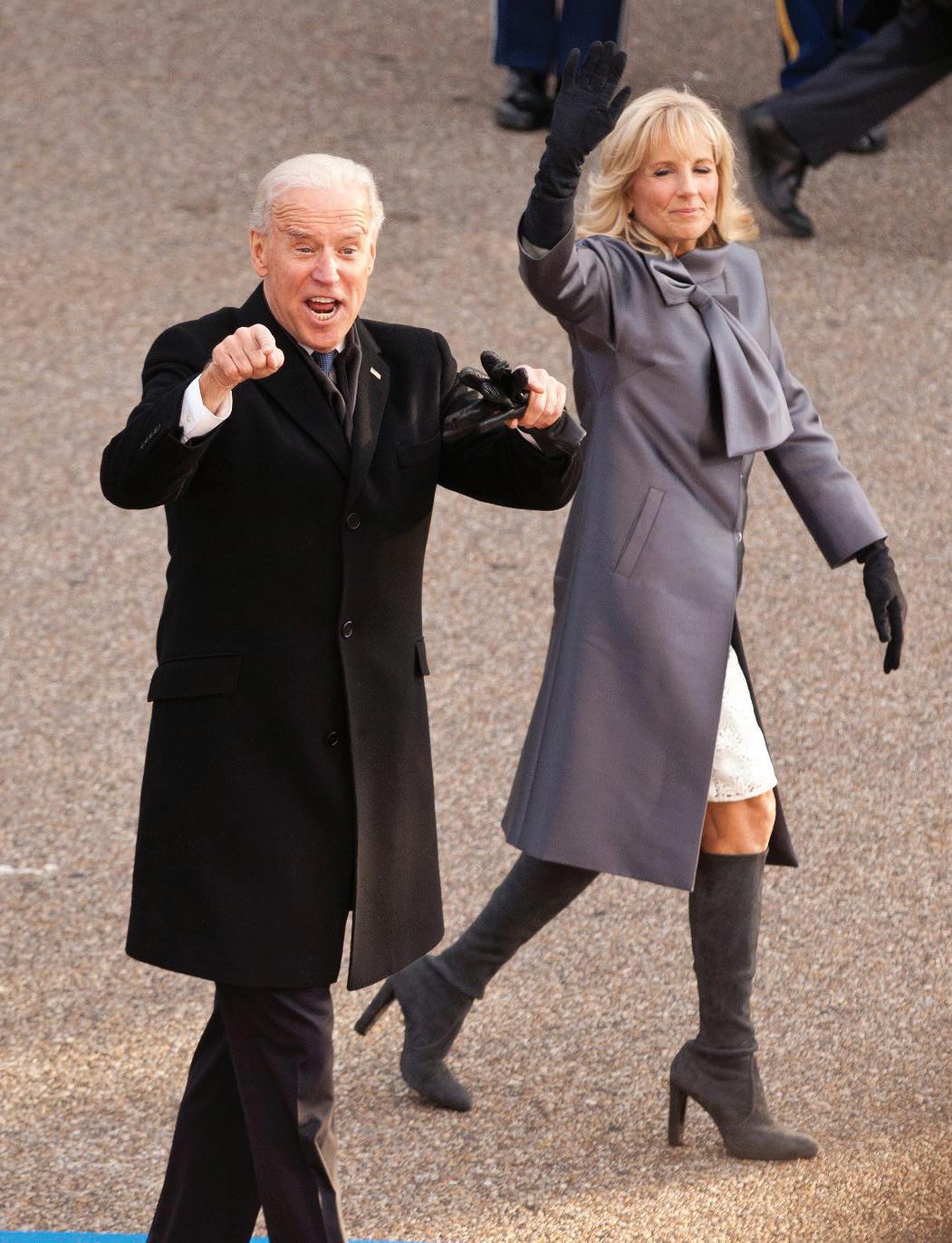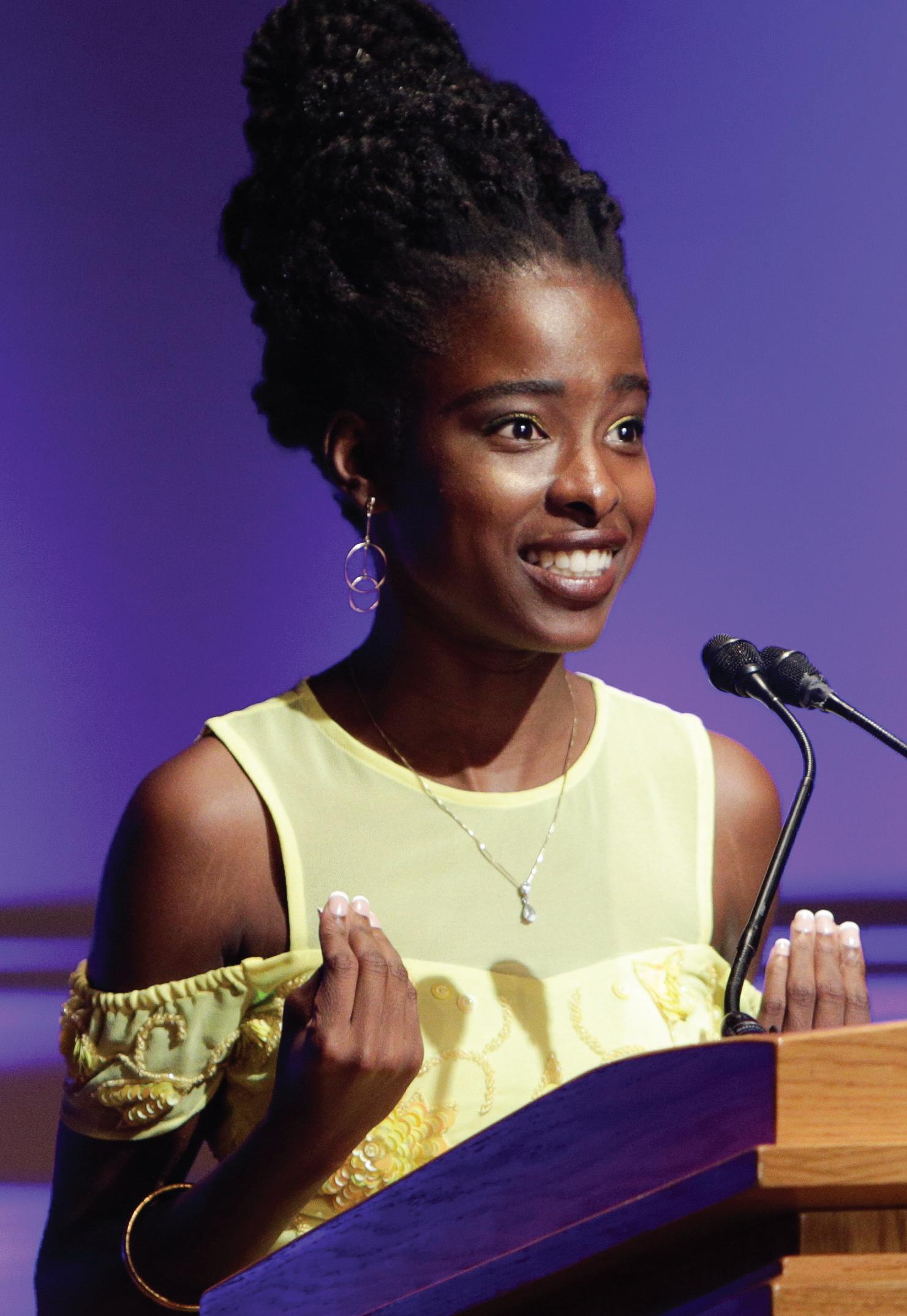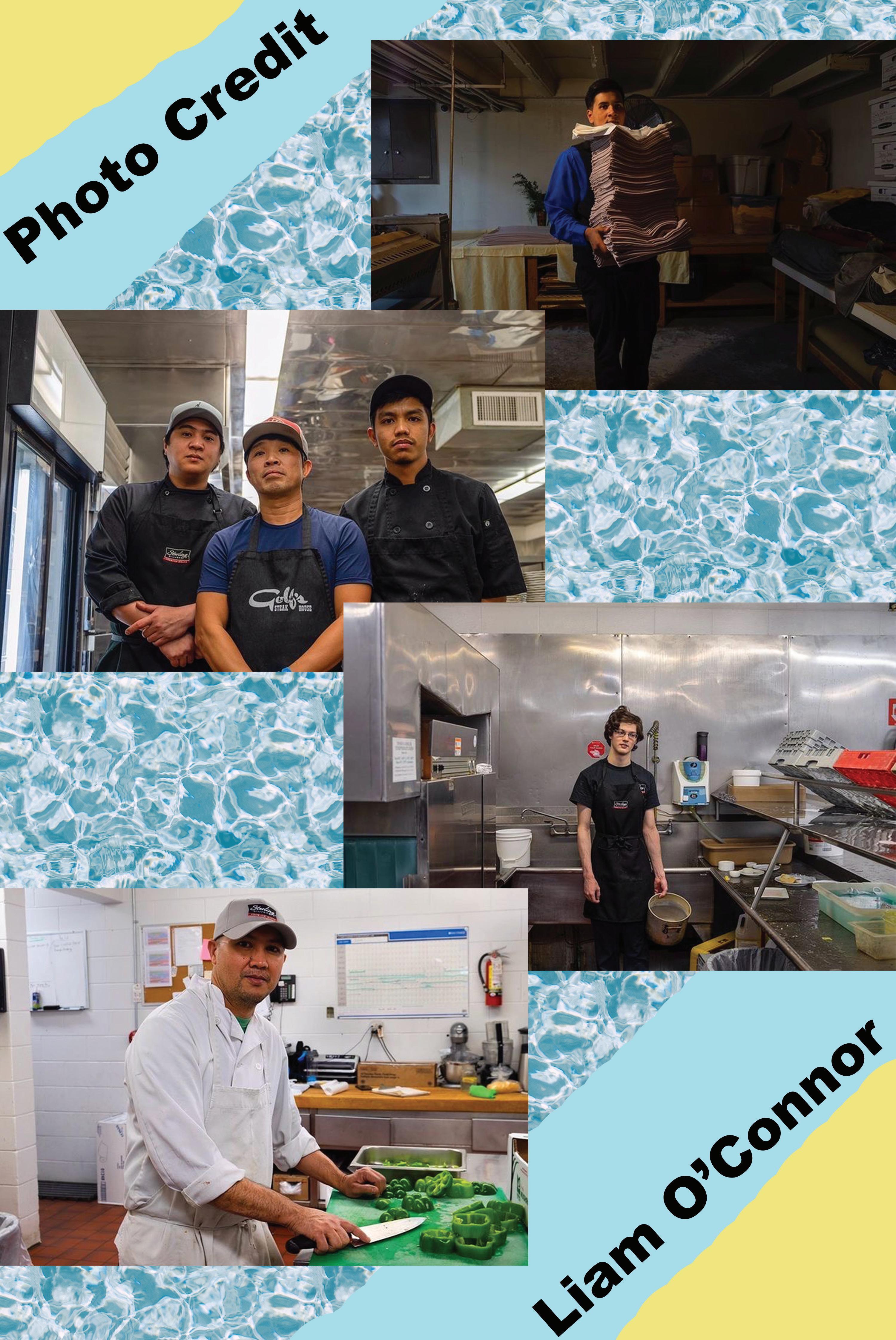
11 minute read
Death row
No more capital punishment
The death penalty is an appalling form of capital punishment, used to give the state power, create a diluted sense of justice, and take the lives of many.
Advertisement
I don’t particularly like the term “death penalty” itself. It implies that the person being put to death is guilty of a crime, and in many cases, innocent people are placed on death row. Why not call it murder by the state? Murder sounds much more fitting considering the outcome – in my opinion.
The conversation surrounding the morality of the “death penalty” has surfaced recently when the state killed Dustin Higgs, a 48-year-old man, convicted of murdering 3 women in January of 1996: Tamika Black (19), Tanji Jackson (21), and Mishann Chinn (23).
I will not argue the facts of this case, as that is a whole other issue. However, the gunman who killed two of these women was given a life sentence, while Higgs was sentenced to death, and that does not sit right with me. I am certainly not saying that the gunman should have also been assigned this horrid punishment. I would argue that Higgs, and other people sentenced to death, are being wronged by the state and the people. Whether guilty of a crime themselves or not, I do not believe that anyone should be killed.
I recall a day when I was on the playground in grade school and another child hit me – it hurt. My reaction was to hit back. The teacher stopped the interaction and explained to me that I should “be the bigger person and just walk away,” that I should “find a teacher so that they can talk to the student about their actions.” The conclusion was that it is better for only one person to get hurt, and for the perpetrator to as a result be taught better actions and given the support that they need to be a “better” member of society. Now, that analogy may seem silly, as five-year-olds on a playground hitting each other cannot possibly be the same as taking one’s life – but I would argue that in terms of handling the situation, this is a principle that we should remember. If that day I had just responded by hitting the other child, what would either of us have learned about violence? Would we know that physical abuse is wrong, or would we have learned that it is okay as long as the amount of damage done is equal and “fair?”
I find that there is often a false conflation between the concepts of “fair” and ”equal.” In my understanding, fair is
not always equal, and therefore justice is not always understood. If we continue to punish those who kill by killing with state power, who wins? Who feels a sense of justice? Who is happy? The families of those Higgs (allegedly) killed are still suffering the loss of their daughter, sister, partner, and friend. Now, in turn, Higgs’ family is suffering the loss of their own loved one.
If it was your sibling, child, partner, or friend who was convinced of such a heinous act, would you think it was fair for them to be killed in return, or would you want them to get the support that they need to re-enter their community and learn from their previous actions? This is not about an immediate “fix” – it is about looking past oneself and opening your heart to another human being and many generations to come.
The justice system we know today is not attempting to create a better, safer, happier society. Rather, it comes up with solutions to “get rid” of problems, to cost less money, and to make people afraid of the state. This only allows the state to hold more power over the people.
A state where justice system had the power to take your life, even if you are innocent, does not allow for individuals to have autonomy over their own person. Should the institutions and social structures
have that kind of power over the people? This question is especially important when issues such as racism and sexism are built into these institutions – how can someone like Higgs, a Black man, truly receive a fair trial with his life on the line? There is no such thing as a blind trial when every single person has bias because of how society has raised us, whether it be conscious or not.
Black Americans like Higgs face poverty at a disproportionate rate, and far too often poverty is related to over-policing, which in turn is related to criminal convictions (whether accurate or not). Overall, this leads to more racialized people in the justice system, a bias on the inside, and a further cycle of poverty in the communities. There is no end in sight. Racialized people are overwhelmingly targeted by the justice system and far too often wrongfully convicted, just because of their appearance.
Higgs went to his grave swearing that he was innocent, and although there is no way to prove his innocence (or guilt), it is still important to acknowledge the failures within the justice system to be able to work towards positive systemic change for future generations.
Imagine living in a society where criminals were not looked down upon. Where people who were struggling were seen as human beings equally as valuable as those with high status. Imagine those who were caught up in a crowd they did not want to be a part of having the chance to a safe place, where they know that they would receive help rather than judgement, a prison sentence, or death.
Rehabilitation is worth more for us than incarceration. People being treated as people should be the minimum requirement.
The “death penalty” is wrong. It should be banned immediately, and with the newly sworn in President and Vice President of the United States, Joe Biden and Kamala Harris, I am hopeful for change – yet there is still a lot of work to be done.
Dustin Higgs was murdered at the hands of the state. Let’s fight for him to be the last person to ever receive that sentence. Let’s hold the government accountable. Let’s fight for racial equity. And most of all, let’s remember that fair does not mean equal. He was not your loved one, but what if he was – would you fight for his life then?
“In my understanding, fair is not always equal, and therefore justice is not always understood.
– Reese Estwick
reese estwick
staff writer
pixabay A courtroom in a circle formation.
With women told not to speak up, it’s meaningful when one does
As a child, I was always told that I was too loud, too talkative, and too opinionated. It’s a common criticism that women, especially young women, face around the globe.
I talked too much and was too assertive. I was too passionate or overly-excited. The list goes on and on. Regardless of intent, the steady stream of assertions that I was “too much” played a large part in my desire to not take any leadership roles later in my teen years. In my younger days, I didn’t join the student council or any outspoken groups at my high school. Instead, I kept my opinions and thoughts to my friend group, and tried to coast through my education with my head down.
In truth, I had even entered this university campus with that same mentality. “Get your degree, get out, that’s it. Nothing extra.” How was I to ever be taken seriously in a leadership role if, at every turn, I had been told I lacked what was required?
This is why the young girl in me was floored, and so excited, to see Kamala Harris take the seat as Joe Biden’s vice presidential running mate in the 2020 U.S. Presidential Election. Harris stood for everything that I had been told was a detriment. She was passionate and loud; she stated her points clearly and demanded to be heard. Most of all, she dodged every sexist comment that was tossed her way and continued, despite it all, to speak her mind.
Now, I understand the controversy that surrounds Harris, and this article isn’t to discredit or knock the very valid critiques that people have offered about her policies or the Biden administration. This article is not an attempt to speak over that, but instead is meant to acknowledge how wonderful it was, as a young girl who seldom saw herself represented in places of power, to finally watch it happen.
When I saw Harris get interrupted or shut down by other officials – told she was overreacting or didn’t have the proper qualifications – I saw myself in her. I saw the little girl who was told all those same things years ago, and internalized them, altering how she expressed herself.
Early into Harris’ victory speech in November 2020, there is a moment when the camera cuts to a young woman in the crowd. Tearfully, she turns to the man to her right, bringing a tissue up to her face, and then turns back to Harris in awe. All the while, Harris speaks about “ushering in a new day” for their country.
That is the face of someone who feels seen. Who has, for the first time in their lives, witnessed what has felt like the impossible. They are witnessing someone that represents them take the stage and speak on behalf of their people. Most importantly, they are watching someone like them be heard.
Growing up, when I was told that my voice was in the way, too loud, or too opinionated, I would have adored seeing a woman like Harris in office – a woman who had heard all the same things, and yet rolled them off her shoulders to get her work done. For the first time ever, I and others have been able to watch a woman who has faced our common adversities take on a position no woman has ever had before.

taylor balfour editor-in-chief
Wikimedia Commons
Joe Biden walking while giving a thumbs-up.
Unity: the 2021 Inauguration
So much better than the alternative
With 2021 rolling around and the inauguration of President Joe Biden having officially taken place, I think we can all breath a sigh of relief and say “thank fuck that’s over.” Congratulations to everyone south of the border, you did it; you showed up and put someone that wasn’t the walking definition of the word “pathetic” into office. Granted, more than 74 million still voted for the prick, but small victories, people, small victories. I would personally like to extend my gratitude to Georgia, Pennsylvania and Michigan for being the all-star tag team of states that helped to make this a reality. That being said, and bashing aside, let’s look at President Biden, the inauguration and what we can expect in this bright new year.
As far as the inauguration goes, it was a nice way to usher in the new President. Garth Brooks, a known Republican, performed at the ceremony and talked about what would end up being the theme of the day: unity. Brooks’ discussion, much like others that would talk during the inauguration, was one that everyone needed to hear after the four years of sheer thick-headedness that took place in the United States (sorry, bashing again). However, Brooks’ discussion was far from the highlight of the night, as Amanda Gorman’s inaugural poem, ‘The Hill We Climb,’ was a reading that struck an emotional chord with the many in attendance and watching from home.
For those that didn’t get a chance to hear the reading and experience the emotional weight that it brought the inauguration, here is a small excerpt from it just below: and change our children’s birthright. So let us leave behind a country better than the one we were left with. Every breath from my bronze-pounded chest, we will raise this wounded world into a wondrous one. We will rise from the gold-limbed hills of the west. We will rise from the windswept northeast, where our forefathers first realized revolution. We will rise from the lake-rimmed cities of the midwestern states. We will rise from the sunbaked south. We will rebuild, reconcile and recover. And every known nook of our nation and every corner called our country, our people diverse and beautiful will emerge, battered and beautiful.

This powerful section of Ms. Gorman’s poem solidifies what is (or rather, what should be) the common goal of all Americans. The time for divide and the time for hate is over. Plain and simple. There are no ifs, ands or buts when it comes to the numerous subjects that need to be addressed in the U.S. – as well as Canada – today. As someone who truly hopes for the very best of people, I certainly hope to see the very best of President Biden as he moves forward with his presidency.
Overall, let’s hope this presidency, as well as this year, holds significantly more positives as we all look to continue to stay healthy. Also enough with the Bernie Sanders mittens meme.
graphics
editors: sarah carrier, kate thiessen graphics@carillonregina.com the carillon | january 28 - february 3, 2021


